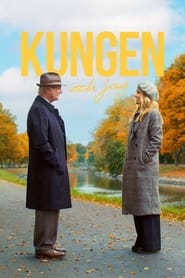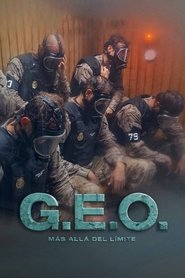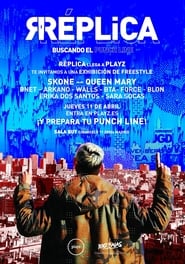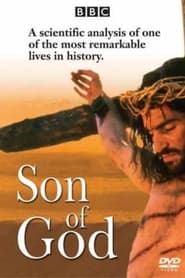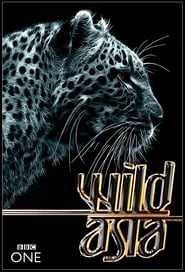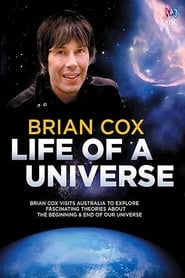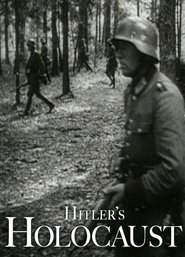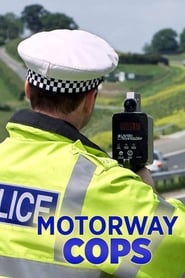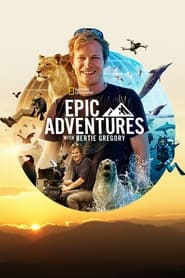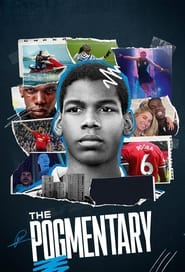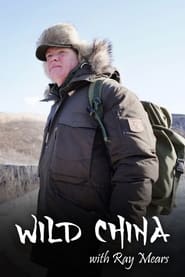Documentary TV Series - Page 423
-
Classic Woodworking
2018
Classic Woodworking
2018
Tom McLaughlin, longtime woodworker, teacher and a member of the New Hampshire Furniture Masters, teaches the latest wood crafting techniques, as well as tips and instruction for how to create projects that can be passed down for generations. In each half-hour episode, unusual design inspiration will be turned into easy-to-follow projects for woodworkers at every skill level. -
Kungen och jag
2023
Kungen och jag
2023
-
Sarah Beeny's New Country Lives
2023
Sarah Beeny follows families and couples through the highs, lows and laughs as they say goodbye to the city and embark on new lives in the beautiful British Countryside. -
Spain's Elite Force: Beyond Limits
2021
star 7.6For the first time in the history of the Spanish Police, a camera crew has been granted exclusive access to the selection process for new members of the Special Group of Operations (G.E.O.), which lasts for more than seven months. Dozens of officers start, but only a few will finish the course. -
Filmgorillas
2020
Filmgorillas
2020
-
Réplica
2019
Réplica
2019
-
Jesus: The Complete Story
2001
Son of God is an award-winning British documentary series that chronicles the life of Jesus Christ using scientific and contemporary historical evidence. It was presented by Jeremy Bowen, and its first episode premiered in the United Kingdom on 1 April 2001. The executive producer was Ruth Pitt and it was directed by Jean-Claude Bragard—it took a total of 16 months to produce and cost GB£1.5 million. A full symphonic score was composed by James Whitbourn. Son of God featured interviews with 21 historians and other Biblical experts, live action reenactments of the life of Jesus with Leron Livo in the lead role, and computer-generated images of what locations from Jesus's time might have looked like. These images, created by design team Red Vision, were praised by critics and received an Outstanding Achievement Award at the 2001 Royal Television Society North Awards. -
Damals …
1992
Damals …
1992
-
Timster
2015
Timster
2015
-
Wild Asia
2009
Wild Asia
2009
star 6Asia is the most diverse region on Earth, home to a remarkable collection of iconic animals. Elusive snow leopards hunt in the Himalayas, orang-utans dwell deep within humid rainforests and wild horses graze the stony Gobi Desert. The Wild Asia series reveals the incredible range of Asia’s environments and wildlife. -
Brian Cox: Life Of A Universe
2017
star 6.7Professor Brian Cox comes to Australia to tackle the biggest story of them all - how did the Universe come into being? Do the laws of physics for our universe inexorably lead to the existence of us? -
The Case of: JonBenét Ramsey
2016
star 6.2Clemente is joined by Scotland Yard behavioral analyst Laura Richards. Together, and with the aid of several others involved in the original case, they will try and solve the mystery of Ramsey’s death “once and for all.” -
Hitler's Holocaust
2000
Hitler's Holocaust
2000
star 5.9Under the guidance of Simon Wiesenthal, documents the year-long process leading up to ‘the Final Solution’ using newly accessible Eastern European archives, first-hand eyewitness accounts and world renowned historians. -
Motorway Cops
2008
Motorway Cops
2008
star 6.4Cameras catch the intense action that follows the law enforcers of Britain's motorways as they pursue criminals of all types. -
A League of Extraordinary Makers
2022
Every movement needs its superheroes. They inspire, they lead, they create, they sacrifice. And we went in search of them. Meet A League of Extraordinary Makers who made it and sometimes failed along the way too but never stopped making. Because some things just need to be done! -
Epic Adventures with Bertie Gregory
2022
star 7.7Follow the escapades of a young Explorer as he travels the world capturing extraordinary footage of wild animals. -
The Pogmentary: Born Ready
2022
star 3.8A glimpse into the life of Paul Pogba, the influential world-class French footballer. -
Wild China With Ray Mears
2021
star 8Ray Mears is on a journey of discovery among the landscapes and wildlife of China.Starting in the capital Beijing, and taking in wonders of the world like the Great Wall of China, Ray walks with elephants in the country's tropical rainforest, joins rangers rewilding the nation's giant pandas, searches for the elusive snow leopard, explores one of its most famous landscapes in Karst country, comes face to face with a brown bear, and treks in the foothills of the Himalayas alongside herbal medicine experts, uncovering secrets of its plants. -
Fever Pitch: The Battle for the Premier League
2023
star 9Fever Pitch’s second installment explores the decade that money ruled at both ends of the table. It’s the story of rich and poor, tragedy and triumph, truth and corruption. The Battle for the Premier League examines such an era through the often conflicting sides of the story, from Mourinho to Redknapp lives at the top often contrasted to lives at the bottom with teams like Leeds United and Southampton desperately trying to stay afloat in a world they can barely afford to inhabit.

